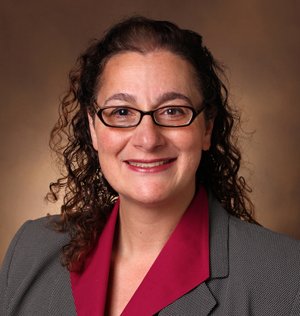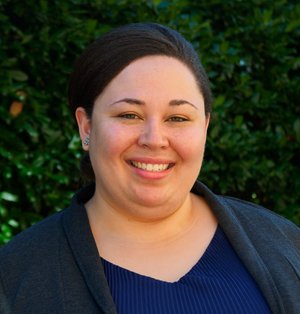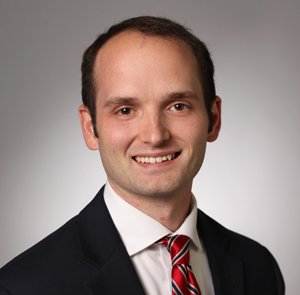by Bill Snyder
The federal government has renewed its support for a Health Learning System (LHS) T32 training program at Vanderbilt University Medical Center that prepares researchers to discover, evaluate, and implement strategies to improve patient outcomes and ultimately, the general health of the community.

The traditional approach to health care delivery separates scientific research, evidence generation and practice, said Christianne Roumie, MD, MPH, professor of medicine, pediatrics and health policy at Vanderbilt. These isolated systems lead to missed opportunities, wasted healthcare, and the potential for costly and suboptimal care.
Health systems learning trains postdoctoral health care leaders to discover and implement new ways to deliver high-quality care and advance science simultaneously. This is a critical next step in transforming a “reactive health system into one that is proactive and capable of improving population health,” Roumie said.
Roumie is co-principal investigator on the grant with Carlos Grijalva, MD, MPH, professor of health

Policy and biomedical informatics. The $2.8 million five-year renewal of the 5T32HS026122 research training grant was awarded this spring by the US Agency for Healthcare Research and Quality.
It supports the continuation of a program called PROgRESS, for Patient/practice Outcomes and Research in Effectiveness and Systems Science, which since 2018 has provided two years of cross-training in patient-centred outcomes research, science implementation, and health policy/ community health to 16 investigators.
For Jennifer Richmond, PhD, MSPH, a 2020-2022 intern, the program has helped me grow and achieve many of my career goals focused on Health Equity (It) has paired me with

supportive mentors and have provided outstanding training.
I particularly benefited from the implementation science training and sheltered time to focus on growing into an independent researcher, she continued. This sheltered time helped me learn new data analysis skills, publish high-impact research, and leverage huge grant writing (VUMC) and other professional development resources.
Richmond entered the Vanderbilt program after completing her PhD in health behavior from the University of North Carolina at Chapel Hill in 2020.
While in graduate school, she participated as a health policy research fellow in a leadership development program supported by the Robert Wood Johnson Foundation and contributed to several journal articles exploring the negative impact of medical inequity and mistrust on health. access to health care.

The Vanderbilt program helped her successfully apply for a two-year K99 Pathway to Independence Award for promising National Cancer Institute postdoctoral scientists who will support her research into ways to improve equity in lung cancer screening among affected populations in disproportionately by the disease.
This research will help address an urgent public health need, increase screening equity, and help eligible patients benefit from a proven strategy for early lung cancer detection, said Richmond, who accepted a position as a lecturer at Wake Forest University School of Medicine in the fall.
Joseph Starnes, MD, MPH, who will begin the second year of a three- to four-year pediatric cardiology fellowship at VUMC this fall, is one of two interns entering the PROgRESS program this year.
Like Richmond, Starnes is also interested in exploring ways to improve health equity. His project will examine the accuracy of fingertip pulse oximetry in detecting critical congenital heart disease in newborns with darker skin tones.
Pulse oximeters are fingertip devices that can non-invasively determine the level of oxygen in your blood by analyzing a beam of light as if it were passing through your finger. Abnormally low levels of oxygen in the blood are a sign that the heart is not working properly.
Every baby in the United States is screened before leaving the hospital with a pulse oximeter to check for congenital heart disease that would need surgery or intervention in the first year of life, Starnes said.
There’s a growing body of literature that pulse oximeters aren’t as accurate in people with darker skin, she said. Overestimate oxygenation. So, in theory, there’s a group of babies who pass screening because their oxygenation is overestimated, but they end up with critical congenital heart disease.
His project will compare oximetry readings with blood gas measurements of blood samples taken with needles to determine the accuracy of oximetry in newborns with different skin tones. Ultimately, he hopes to develop an algorithm that can correct for differences in skin tones and make oximetry more accurate for all children.
Starnes acknowledged that it’s difficult to get funding for pilot projects, like his own. This is why the T32 tutored research support provided through PROGRESS is so important.
It gives him sheltered time from his clinical obligations to learn how to do research and will prepare him to successfully compete for independent research grants in the future, all while pursuing an important clinical question that hasn’t been thoroughly researched before.
Since his medical school days, Starnes has been involved in efforts to improve health care equity for all. This project helps bridge all of that, he said.
#Grant #renewal #strengthens #patientcentered #outcomes #research #training #program
Image Source : news.vumc.org